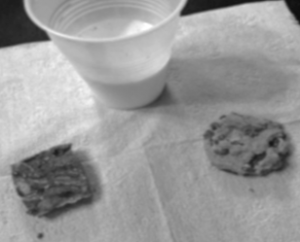Inspiring Interior Design (Part 21)
By Asher Crispe: September 3, 2012: Category Inspirations, Quilt of Translations
Personal Taste
 I must confess that I am not an interior designer–at least not in the conventional sense. However the idea of having a Rabbi’s perspective on design-related issues is not a new one. Commenting on the virtues of the insights of the ‘outsider,’ Warren Berger in his book Glimmer (p.174) relates a anecdote from powerhouse graphic designer Milton Glaser:
I must confess that I am not an interior designer–at least not in the conventional sense. However the idea of having a Rabbi’s perspective on design-related issues is not a new one. Commenting on the virtues of the insights of the ‘outsider,’ Warren Berger in his book Glimmer (p.174) relates a anecdote from powerhouse graphic designer Milton Glaser:
“For a company to embrace design, Milton Glaser once said, ‘there must be a rabbi inside the corporation,’ meaning someone who is not necessarily a designer him- or herself but is a true believer in the potential of design to reinvent old ways of doing things.”
My hope has been to serve as this naïve set of eyes who will ask the questions that are less apparent to the consummate insider precisely because they are too close to the trade and practice. As an importer of kabbalistic design theory, my desire is to move beyond both the art and the science of conventional design and inject fresh thinking about the meaning of design as a story of our deepest spiritual and psychological dynamics.
One might object that–theory aside–for both client and designer it all comes down to an expression of super-subjectivity. In other words, if everything works out according to contract, I get what I want. Why? Because I like what I like. The client who completely disregards the advice of the designer may be motivated by whim or a deep inner sense of what works (or at least what works for me). Undoubtably this can be frustrating for a designer to deal with. Especially when the client does not know how to articulate his or her needs and desires.
When the client is more given over to the designer, this might be the result of personal flexibility or more often than not, because people do not know what they want until they see it. So show me. Show me the options. Then ex post facto I’ll choose the one I like. Since not all people are visual thinkers, imagining what something might become can be virtually impossible until it is materialized before them.
Kabbalah can shed light on all of the above situations and more. Personal preference, as it is commonly called, can be rooted in many places in the soul. If we were only purely rational beings, a mathematics of design would suffice. We could add interior design to the list of automated services afforded to modern society. Algorithms aside, even when there is a rational for why we want a general look or specific features, it’s still not going to found on a FMRI scan. This has to do with the nature of will or ratzon in Kabbalah.
As the general experience associated with the superconscious crown (keter), will has two primary modalities. The lower of these two is termed ta’am kamus l’ratzon meaning a ‘hidden reason for will.’ As such, I have a reason for what I want but that reason (or perhaps the real reason, the reason not given consciously to myself nor expressed to others) remains hidden. If I make the effort to reflect upon the real ‘why’ I might unearth it after dedicated meditation. We experience this every time we reach the realization that ‘I thought I wanted thus and such for this and that reason,’ but now that I have thought about it more, I see that the true reason had eluded me all along having been carefully locked away in my unconscious mind.
The crown sits about the head surrounding it from the outside. This is emblematic of will which defines our conscious headspace while remaining transcendent to the dictates of the intellect. Will is always there in the periphery of any thought process, but it cannot be entirely contained by it. At the same time, all of the powers of the soul are described as imbricated. In that case, some form of proto-intellect must exist within the superconscious will. In the Zohar, this pre-conscious state is termed mocha stimah or the ‘hidden mind.’ When we excuse our strange behavior or eccentricities for ‘reasons unknown’ we are actual evoking this sense of the hidden mind. My mind has a mind of its own. Every mind reading, therefore, has to be a double mind reading: one to gauge the conscious thoughts and another, the reasons undercover within the will. Reach your hand into the purse and you many pull out a ‘why’ with its own printed booklet of instructions and explanations written in many foreign languages.
The higher modality of will completely transcends the intellect, called ein ta’am l’ratzon which is commonly translated as ‘[there is] no reason for will.’ No explanation fits. When confronted for the reason, I suffer an immediate loss of words. I cannot possibility justify why in my heart of hearts I want one thing over another. If asked which flavor of ice cream I like better–chocolate or strawberry–and I declare chocolate to be my personal favorite, I may be forced to concede that there is no reason whatsoever for this. You can psychoanalyze me under hypnosis and not discover anything. It begins and ends with me. It is called atzmi or ‘essential.’ There was no repressed memory from my youth of my Uncle Bob taking me and my brother for chocolate ice cream. Nor did my aunt play audio recordings at low volume as I napped, relating to my subconscious the inherent undesirability of strawberry via some form of neurolinguistic programing.
The answer is that I have no answer. I went. I searched. I ransacked my inner home and found no evidence of rational explanation. A Hebrew speaker might respond under interrogation to the question of ‘why’ with a single word: kacha. Kacha means ‘just like so,’ or ‘because.’ It’s the English equivalent of saying ‘I just do.’ I can only use self-reference. I define the state with the state: I want it because ‘I’ want it. This strange loop bankrupts conventional logic slipping out of its reach.
Many of the Chassidic masters have emphasized that the word kacha (just like so) [ככה] is actually thought of in the esoteric tradition as an abbreviation for keter kol ha-ketarim meaning the ‘crown of all crowns’ [כתר כל הכתרים]. In our present context, we might render this expression as ‘the crown within the crown(s)’ or the essence of the crown. Since crown refers generally to will, our phrase signifies the ‘will of wills’ or pure will, will uncompromised by the intellect. What I want is not conditioned by any reason. If it were conditional and that reason then disappeared, the will would vanish as well. One’s supreme will is unconditional. No reasons required or accepted. The crown within the crown transcends the root of intellect in the hidden mind within the crown. As such it is super-rational.
Another nuance explored in Chassidic teaching involves a slight revocalizing of the word ein (no) in ein ta’am l’ratzon ([there is] no reason for will). The Ba’al Shem Tov teaches that whenever one sees this word it can be read as though it were pronounced ayin which means ‘nothingness.’ This ‘nothingness’ is the ‘reason for will.’ What I want ultimately rests on nothing (ayin).
The Ramban points out that ayin [אין] can be translated with the Greek word hiuli [היולי] which means ‘formless potential.’ Written in Hebrew, the two words even have the same gematria (61). This informs us that our most essential will is amorphous. It is not nothing but rather no-thing, no specific thing, no definite object that can be apprehended by the intellect. It also implies that our ultimate will at its core exhibits plasticity. In its essence there is no form to it. Only when we attempt to translate our will into a practical application or concretize it with specific objects of desire does it assume a definiteness. Prior to praxis, I only have unknowable will which is the root of will within faith. This is when I may say: “I believe this is what I want’ with an unverified certainty.
So when we are thinking through all our interiors, we must be understanding of the personal preferences of ourselves and others. Being mindful of this addresses the final lesson of interior design–the consideration of design ‘essentials’ from the standpoint of the most personal and spiritual root in the plasticity of no-thing.
























;)
;)
;)
;)
;)
;)
;)
;)
;)
;)
